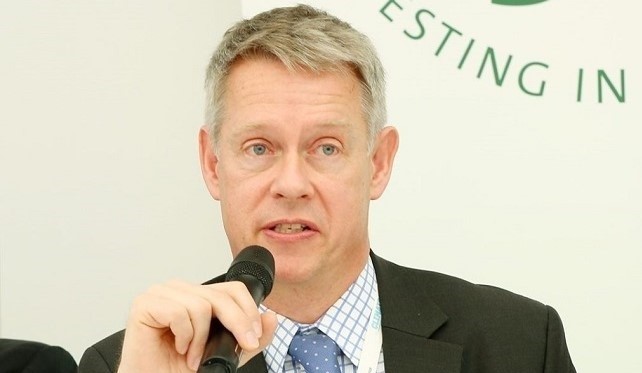The fashion industry is raising its collective ambition with updated science-based emission reduction targets under the Fashion Industry Charter for Climate Action.

Announced on Monday, November 8, 2021 at COP26, the renewed commitments form a decarbonisation planaligned with Paris Agreement ambitions to limit the global temperature rise to 1.5 degrees Celsius above pre-industrial levels. They recognise the fashion industry as a major global player needing to take an active part in contributing to the realisation of these goals.
Central to this is the call for companies to set Science Based Targets or halve their emissions by 2030, with a pledge to achieve net-zero emissions no later than 2050. This is an update on the previous target of 30 per cent aggregate greenhouse gas emission reductions by 2030.
It comes at a crucial moment for climate action following the latest Intergovernmental Panel on Climate Change (IPCC) report, which referred to a “code red for humanity”.
“This is an important milestone for the Fashion Charter, as it increases the ambition level in effort to align the industry with 1.5 degrees. It is a signal that we need to work closely together with our peers, our supply chain, policymakers and consumers to get on the track to net-zero,” says Stefan Seidel of PUMA, who Co-Chairs the Fashion Industry Charter Steering Committee.
Further commitments in the updated Charter include sourcing 100% of electricity from renewable sources by 2030, sourcing of environmentally friendly raw materials, and phasing out coal from the supply chain by 2030 among others.
Fashion Charter signatories collectively represent a significant proportion of the fashion industry. There are currently 130 companies and 41 supporting organisations that have signed the Fashion Charter including some of the well-known brands such as Burberry, H&M Group, VF Corporation, adidas, Kering, Chanel, Nike, and PUMA as well as suppliers such as Crystal Group, TAL Apparel and others.
The renewed Charter also calls for creating incentive mechanisms for supplier engagement in decarbonisation pathway as well as outlines measures to engage other stakeholders who will need to play their part, including policymakers, financial institutions and communicators. The Charter lays out a plan to jointly develop and implement a collective decarbonisation strategy with the practical tools necessary to deliver on the Charter greenhouse gas emission reduction targets.
“In a time when the climate crisis is accelerating to unprecedented levels, we need the real economy to lead on climate action. The strengthened commitments of the fashion charter signatories is an excellent example of such leadership,” said Niclas Svenningsen, Manager of Global Climate Action at the UN Climate Change.
The new Charter was presented in a session exploring how to pivot the fashion industry to a net zero pathway, the opportunities and barriers to decarbonisation, and the existing solutions that can be scaled and accelerated. During the event, a call for policies to incentivise the use of traceable and environmentally friendly materials, was issued.
